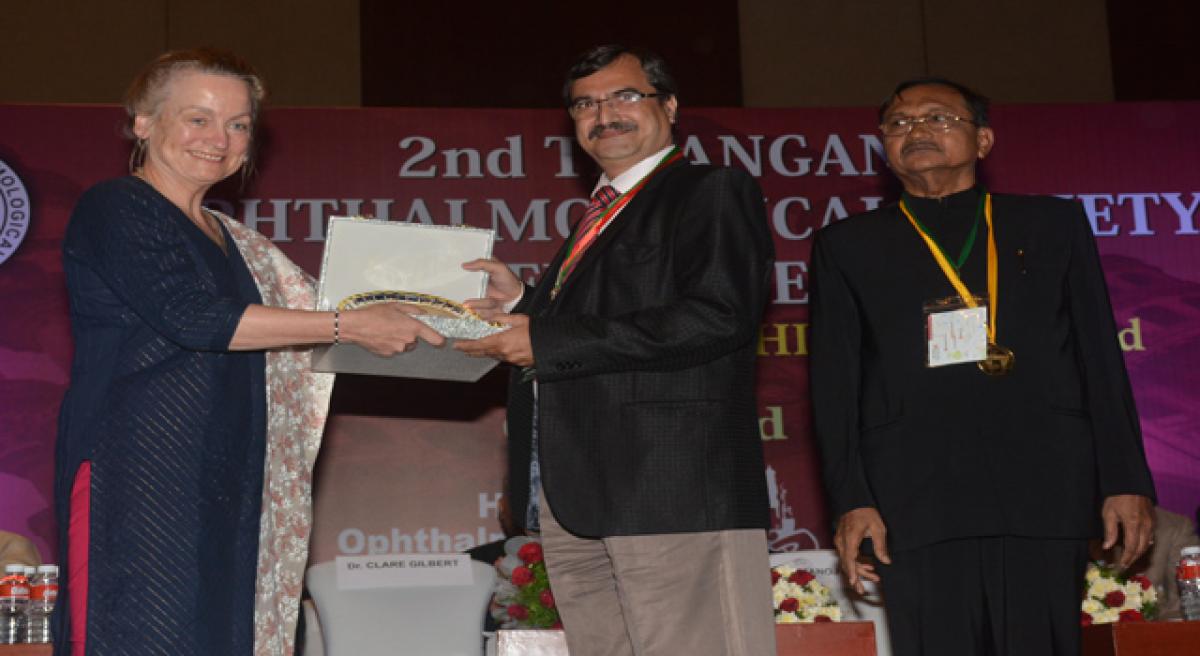Just In

With diabetes as a disease increasing by the day, it is impacting health systems globally and particularly India, said Prof Clare Gilbert, Prof of International Health, London School of Hygiene & Tropical Medicine who inaugurated the 2nd annual conference of Telangana Ophthalmological Society.
Hyderabad: With diabetes as a disease increasing by the day, it is impacting health systems globally and particularly India, said Prof Clare Gilbert, Prof of International Health, London School of Hygiene & Tropical Medicine who inaugurated the 2nd annual conference of Telangana Ophthalmological Society.
Diabetic eye disease damages the retina which affects 80 per cent of the patients who have diabetes and takes about 15 to 20 years to manifest itself. Prof Clare said, “The problem is most of the time patients as well as ophthalmologists do not address the problem.
There is a need for annual retino examination and a close coordination of ophthalmologists with physicians.” According to a study, close to 10 per cent of the population in the State may get affected with diabetic retinopathy, said Prof Clare. “Out of the 35 million population in Telangana, the chances of people getting diabetic retinopathy is about 1.5 lakh,” she said.
Retinopathy of prematurity (ROP) a leading cause of blindness in children is also a major worry said Dr G V S Murthy, director, Indian Institute of Public Health. He added, “Diabetic retinopathy and ROP are avoidable only if people go for regular check up. In the case of ROP a simple test in infants would tell us if there is a risk for the baby and remedial measures could be taken up.”
80 cr for diabetic retinopathy and ROP
In what can be termed as a major fillip to tackle diabetic retinopathy and ROP, the Queen Elizabeth Diamond Jubilee Trust, London sanctioned Rs 80 crore for a project that entails 11 states in India. Dr G V S Murthy says, “The programme looks to spread awareness about the need to look into diabetic retinopathy and ROP among ophthalmologists, health workers and the general public. Once the project covers the 11 states, based on the findings it would be taken up in other states of the country.”
The entire programme is coordinated from Hyderabad at Indian Institute of Public Health and is expected to conclude in 2019. The states that would be covered apart from Telangana include Gujarat, Maharashtra, Karnataka, Rajasthan, Kerala, Tamil Nadu, Odisha, West Bengal, Chhattisgarh and Madhya Pradesh.

© 2024 Hyderabad Media House Limited/The Hans India. All rights reserved. Powered by hocalwire.com







